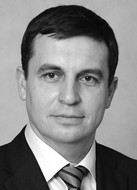Individual variations of age-specific motor qualities and motivations in 10-11-formers
Фотографии:
ˑ:
PhD, Associate Professor E.M. Revenko
Siberian State Automobile and Highway Academy (SibADI), Omsk
Experiment under the study was designed to profile the individual variations of the age-specific motor qualities, motivations and general intellectual abilities in 10-11 formers. The study data and analyses showed statistically meaningful negative correlations between the motor qualities and general intellectual abilities in the sample on the one hand; and on the other hand the study found differences in motivations for motor activity in students versus their intellectual abilities. The school students tested with the higher physical development rates/ motor qualities and lower intellectual abilities showed the higher motivations for motor activity. The study data and analyses demonstrate the practical need in the school physical education policies and practices being redesigned to step up their efficiency and form sustainable motivations for motor activity and self-reliant physical trainings.
Keywords: motor abilities, general intellectual ability, individual age development specifics, motivations for motor activity.
References
- Vavilov Yu.N., Vavilov D.Yu. Sportivno-ozdorovitelnaya programma «Prezidentskie sostyazaniya» (avtorskiy proekt) [Sports and health program "Presidential competitions" (author's project)]. Teoriya i praktika fiz. kultury, 1997, no. 6, pp. 51–54.
- Pasek M., Mikhailowska-Sawchin M., Nowak-Zaleska A. Poseschaemost zanyatiy po fizicheskomu vospitaniyu i ee svyaz s otnosheniem k fizkulture i otdelnymi biologicheskimi i sotsialnymi faktorami s uchetom provedeniya zanyatiy v polevykh usloviyakh i shkolnykh zalakh [The Role of Physical Development and Specific Social Factors in Differentiation of Spirometric Characteristics of 12-13-Year-Old Children]. Teoriya i praktika fiz. kultury, 2014, no. 8, pp. 44–48.
- Revenko E.M., Salnikov V.A. Vzaimosvyazi dvigatelnykh i umstvennykh sposobnostey v protsesse vzrosleniya [Interrelationships of motor and mental abilities in growing up process]. Omsk: SibADI publ., 2014, 392 p.
- Salnikov V.A., Revenko E.M., Bebinov S.E. Individualnost lichnosti v sisteme innovatsionnogo fizicheskogo vospitaniya [Personal identity in innovative physical education system]. Obrazovanie i nauka. Izvestiya URO RAO, 2012, no. 8, pp. 124–135.
- Sinyavskiy N.I., Fursov A.V., Kizaev O.N., Gerega N.N. Soderzhanie nedelnoy dvigatelnoy aktivnosti studencheskoy molodezhi i ee samoanaliz [University students' weekly motor activity: content and introspection]. Fizicheskaya kultura: vospitanie, obrazovanie, trenirovka, 2016, no. 4, pp. 8–9.
- Yasyukova L.A. Test struktury intellekta R. Amthauera (IST). Metod. rukovodstvo [R. Amthauer intelligence structure test (IST). Method. guide]. St. Petersburg: IMATON publ., 2002, 80 p.




 Журнал "THEORY AND PRACTICE
Журнал "THEORY AND PRACTICE